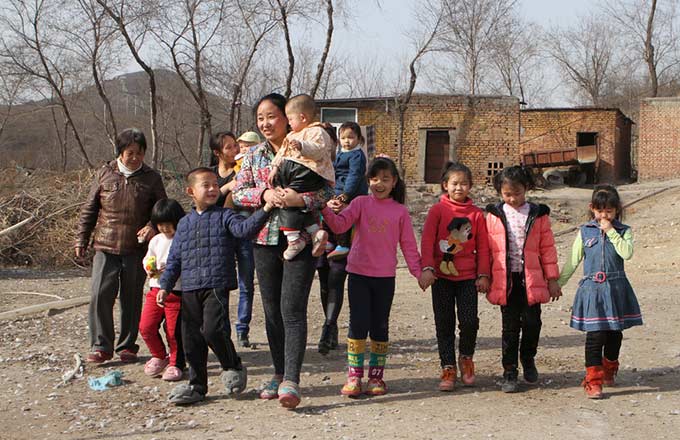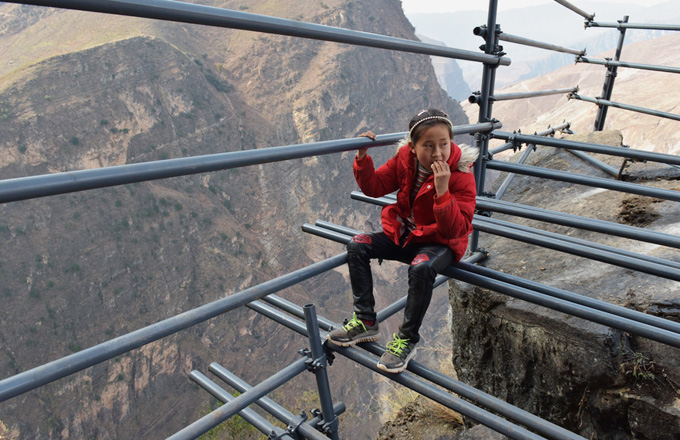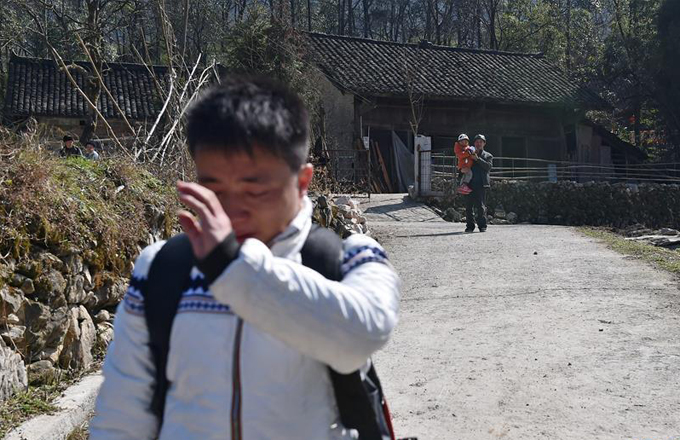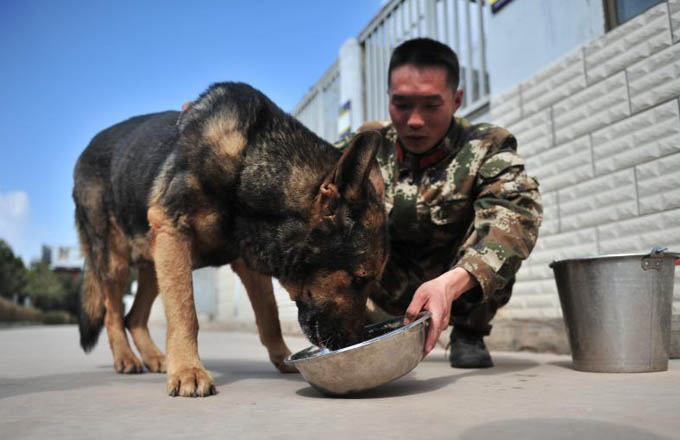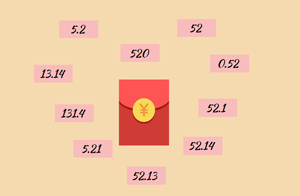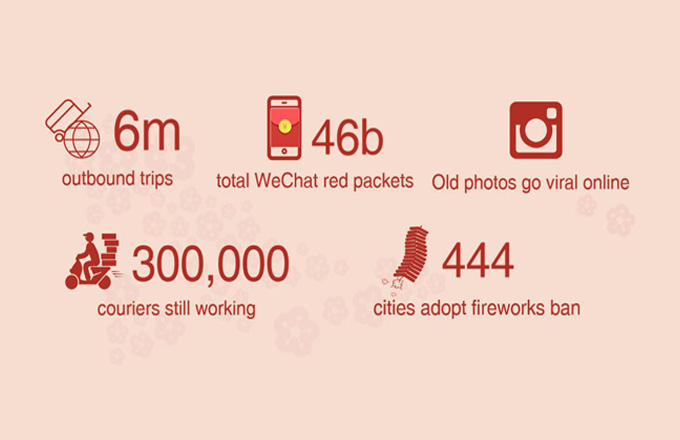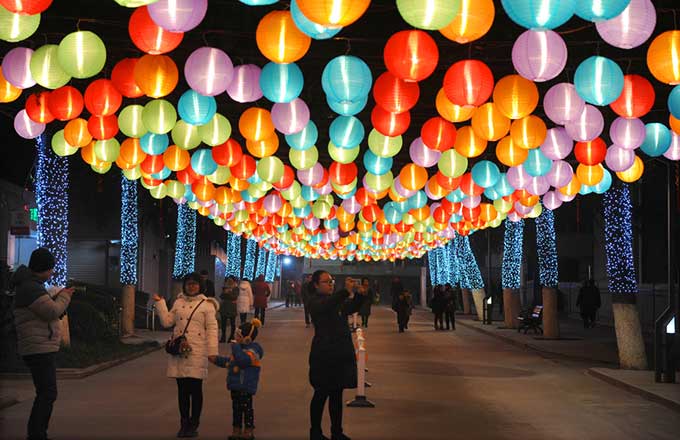Found in Translation
A translator for Russian and Chinese military officers in the 1950s, Bao Shixin tells Mike Peters there is more opportunity today than ever for Sino-Russian experts.
Bao Shixin spreads the pictures on the table with a shaking hand. The longtime PLA officer and translator is 82 and long retired, but when his younger self smiles up from the fading black-and-white photographs, Bao straightens a bit and the same eager grin spreads across his face.
"That's me on a T-34," he says, pointing to a photo of himself perched on a tank that saw plenty of action in World War II.
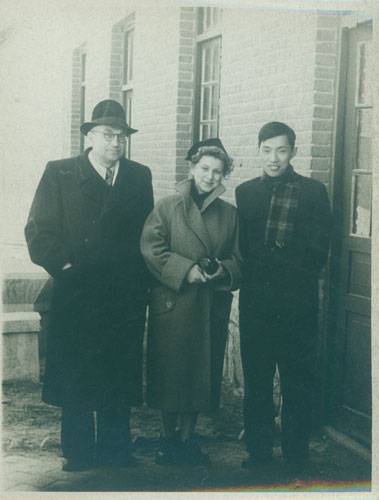 |
|
In the 1950s, the young translator Bao Shixin (right) with his Russian colleague Colonel Alexander Zaharencov and his wife. [Provided to China Daily] |
His job as a translator between Russian and Chinese military officers in the 1950s was unexpected.
"I was fascinated by languages since childhood," he says. "I was studying for a second year at the Shanghai Institute for Russian Language Learning (later Shanghai University for International Studies) in 1950, when the Chinese government bought a batch of weapons from what was then the Soviet Union," he says.
He was recruited to help the Russians teach Chinese soldiers and technicians to master the new weapons at bases in Jilin province, and coach officers on how to use them strategically in their commands.
"Translation was the first necessity," he says, smiling.
In another picture, Bao stands with Colonel Alexander Pavlovich Zaharencov, a senior engineer he worked with for eight years beginning in 1951 to improve tank maintenance and repair. "I went to Russia years later, hoping to find him and his wife," he says, sighing. "But I failed. I still hope I can meet Zaharencov again some day."
Bao is wistful for those good old days, when his back was straight and the keen-eyed interpreter in the photos had the world in his hands. But he's found plenty to do and distinguished himself in many ways since the Russians returned home in 1959. He began his career in systematic military theories studies that year.
Between 1959 and 1990, when he retired, he held a variety of positions with the PLA's Academy of Military Sciences. At the academy, Bao served as translator, research fellow, director of institute and postgraduate supervisor.
In 1991, he was one of the winners of the State Council's Award for his outstanding contribution to military science, and he was also honored by the US Army War College in 2005.
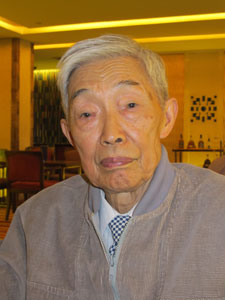 |
|
Bao Shixin, PLA officer and translator. [Photo by Mike Peters/China Daily] |
A senior scholar of global security and people's friendship studies, Bao has taught Russian and translation at military academies and civil universities such as the University of International Business and Economics, and continues to give guest lectures and write.
Bao has traveled to Russia three times. His eyes light up as he describes seeing the Winter Palace at St. Petersburg - "it left me a deep impression" - and he has also visited the cities of Moscow and Vladivostok.
He remembers his Russian colleagues from the '50s fondly. "Every consultant was a good friend. Stashibrat! Lao da ge!" he says, exclaiming "brother" in Russian and Chinese. Bao has been quite excited that China's president, Xi Jinping, made Moscow the destination of his first foreign trip as the nation's new leader.
"His Chinese Dream is very inspiring," he says. "And Vladimir Putin is an inspiring man, too." Strengthening that old connection between China and Russia is good for everyone, Bao says.
Bao's fascination with people-to-people connections - and the fact that he was working with Russians even before he became their official interpreter - explains his fundamental attitude about his life as a translator.
"Translation is not just a matter of language," he says. "Language is a part of culture. Having the big picture is essential."
Many linguistic variations are tied to an understanding of the other culture's forms of expression, he notes. For instance, similar phrases in Russian, Chinese and Japanese would translate literally as "the day is breaking", "the sky is breaking", "the night is brightening up" and "the rain is clearing". Chinese literally say "Go to work happy, come home safely", but the conversational translation would be "Drive safely".
And words like "spiritual" are always a challenge, he says, grinning. "It is controversial in many translations because of the implication of God, which may not be there in the original text."
Such debates have kept a youthful spark in Bao's eyes for decades. "There may not be such a thing as a perfect translation," he says. "A 'faithful' translation can't always be literal to the parts of speech. Instead it must represent the thought and meaning of the speaker."
Proud of his craft, Bao thinks there is more opportunity today than ever for translators, especially those who are bilingual in Russian. Thanks to close relations for decades, he notes, many Chinese who don't speak Russian still know Russian songs - both traditional ones and the sturdy hymns of the 1917 revolution. "There are many restaurants and clubs where Chinese like to go and sing Russian songs," he says.
"Russia is very big with a long history, a long cultural tradition, great literature and colorful language," he adds. "So a mastery of Russian can take you to a place where you can study many old and many new things. And China and Russia are good neighbors, so there will always be opportunities for translators."
Contact the writer at [email protected].






